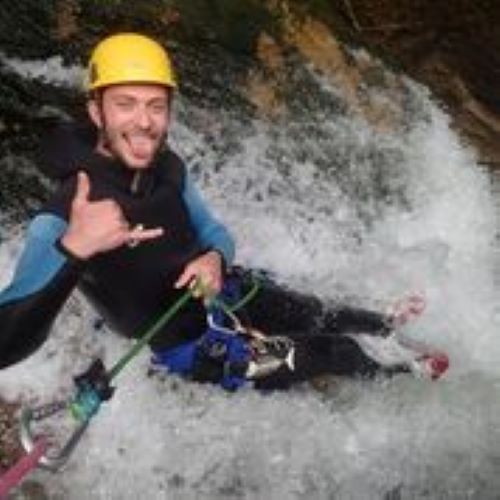HBA Sustainability Certificate
Empowering the next generation of sustainable leaders
Hi! My name’s Nick, and I’m a dual-degree HBA student studying mechatronics engineering. I’m originally from Vancouver, and have loved the outdoors for as long as I can remember. Whether it’s hiking, swimming, skiing, or kayaking, I try get back to nature as often as possible.
I’ve spent my university summers researching sustainable saltwater purification at UBC, backpacking across Europe, helping my brother start an environmental consulting firm called Cedr, and working as a customer consultant at Bell. I’m passionate about environmental stewardship, and my primary professional goal to contribute to the fight against climate change. Nice to meet you!
What is your personal definition of sustainability?
I believe that sustainability is a versatile term, encompassing a broad range of efforts to preserve our society and the environment that supports it. It means consuming only the resources that we need, replenishing what we can, and planning for the long-term. It means sharing knowledge and resources, supporting one another, and working together to ensure that our planet can continue to sustain life long after we’re gone. It means putting the collective good above material desires or selfish motivations, acting rationally and with compassion.
Sustainability isn’t just a buzzword or a public relations strategy; it’s a call to action.
What role do you see sustainability playing in your professional career?
I don’t know where I’ll be in ten years. I don’t know what job I’ll have, what industry I’ll be working in, or even what continent I’ll be living on. What I do know are my strengths, my values, and the causes that I’m passionate about.
I know that I’m grateful for the natural beauty of our planet, and for the opportunities that I’ve had to explore it. I know that I care deeply about the natural world and the complex ecosystems that support it, and that I want to work to preserve them to the best of my ability. I know that I’m a problem-solver, and that there are plenty of problems out there to be solved.
More specifically, I’m interested in how emerging technologies can be leveraged to reduce our collective environmental footprint. I understand that the foundation of modern society was built on the destructive harvesting of natural resources, and that it will take a monumental effort to transition away from that foundation – and I know that we have to try.
What sustainability projects have you been engaged in?
After my first year of university, I had the pleasure of working in UBC’s Chemical Engineering laboratory; there, I assisted a PhD candidate in the research of a cutting-edge water desalination process called capacitive deionization. The motivations behind the project were to develop a more energy-efficient method of purifying saltwater, providing a potential solution to the global freshwater crisis that is developing from overpopulation and climate change.
A few years later, when COVID-19 wiped out my employment prospects in the summer of 2020, my brother and I decided to start our own consulting firm. Cedr Design & Consulting, as we called it, is focused on environmental sustainability transitions for small businesses, as well as Indigenous finance research. We were fortunate to form a relationship with a prominent Indigenous finance consultant, which led to a variety of projects analyzing major energy infrastructure projects throughout British Columbia. Our work over the summer contributed to the analysis of environmental stewardship from an Indigenous perspective, as well as the use of alternative indicators to measure the Canadian economy in a more sustainable fashion. My brother continues to grow the business, and plans to build his career at the intersection of sustainability and Indigenous affairs
Nick Lindley-Peart
